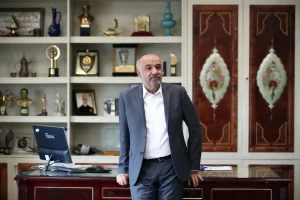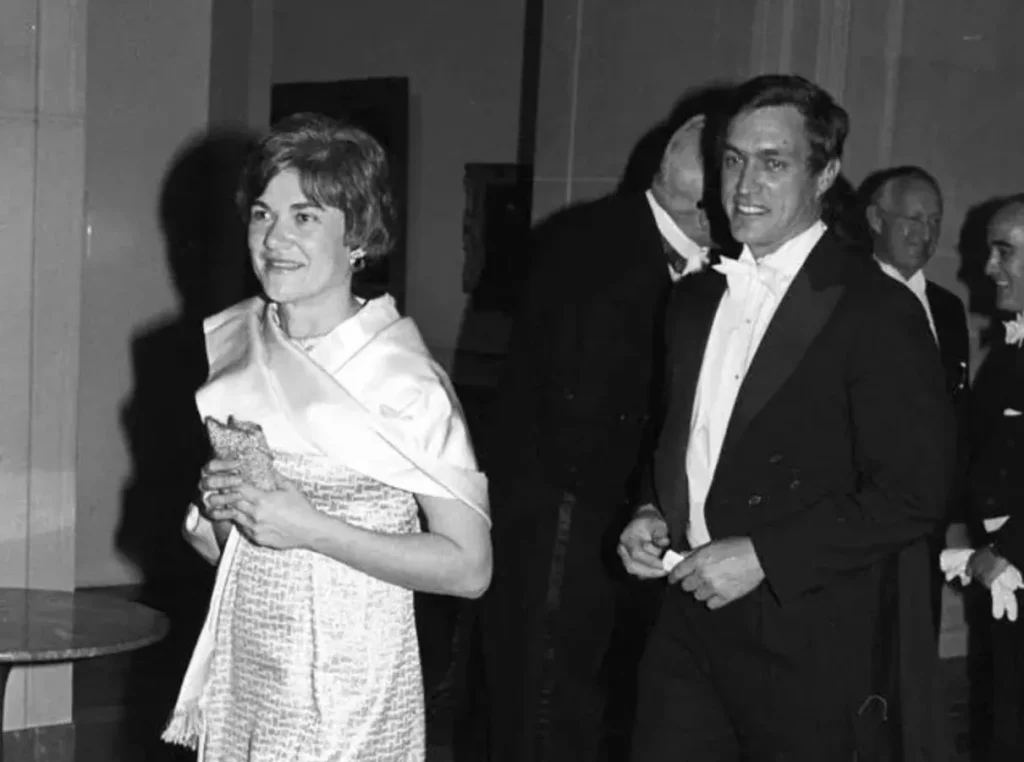The Quiet Billionaire: How Tim Mellon Quietly Became America’s Most Generous Political Donor
In the shadowy world of political mega-donors, Tim Mellon stands apart as an enigmatic figure whose financial contributions have reshaped American politics while he remains largely unknown to the public. Despite his insistence that he isn’t a billionaire, the Mellon family heir has now contributed at least $504 million to political causes, with the vast majority supporting President Trump and conservative initiatives within the last five years. Most recently, Mellon’s anonymous $130 million donation to pay active-duty troops during the government shutdown has elevated him to a unique position in American politics – potentially the first ultra-wealthy individual to donate more than half their personal fortune to political causes. When Trump announced this “patriotic” gift at a press conference, he honored the donor’s wish for anonymity, stating, “He doesn’t really want the recognition, if you want to know the truth.” This preference for quiet generosity over public acclaim has defined Mellon’s approach to political giving throughout his life.
Unlike flashy billionaire donors who court attention at high-profile fundraising events, Mellon has always preferred to operate in the background. Yet over the past decade, he has emerged as one of America’s most significant political contributors, with particular focus on Trump and right-leaning causes. What makes his giving truly extraordinary is that unlike other mega-donors such as Elon Musk, whose $290 million to Trump represented less than 1% of his $500+ billion fortune, Mellon’s contributions represent a substantial portion of his personal wealth. His $282 million donation to Trump’s presidential campaign alone rivals what the world’s richest man contributed, despite Mellon possessing just a fraction of Musk’s resources. The scale of his political generosity is unprecedented – no other billionaire gave more than $20 million or more than 1% of their wealth to any presidential candidate in the last election. Even compared to traditional philanthropy, Mellon’s political giving outpaces the generosity of America’s wealthiest citizens – only eleven members of the Forbes 400 have given away more than 20% of their wealth to any cause, and only George Soros has surpassed the 50% threshold.
While Mellon himself rejects the billionaire label, financial analysis suggests he likely possessed around $1 billion before his recent wave of political donations. Based on his inheritance and proceeds from selling his railroad company, Forbes estimates his political contributions represent between 20% to more than 30% of his wealth to Trump specifically, and approximately 50% of his fortune to various political causes overall. When contacted by Forbes last year, Mellon emphatically denied the billionaire status, writing simply: “Billionaire NOT! Never have been, never will be.” This reluctance to acknowledge his wealth aligns with his general avoidance of publicity and skepticism toward media, which he has characterized as “the propaganda arm of the federal government and the bureaucracy.” His preference for privacy extended to this story, as he declined to comment when contacted by journalists.
Mellon’s political giving extends well beyond his Trump support, with approximately $160 million flowing to federal political committees including the Senate Leadership Fund and the pro-RFK American Values 2024 organization, plus an additional $60 million to state candidates and border wall initiatives. Interestingly, his current conservative political alignment represents a dramatic shift from his earlier years, when he voted for Democratic President Lyndon Johnson and supported progressive causes like economic development programs for southern Black communities, Gloria Steinem’s efforts against sexism, and Ralph Nader’s civic engagement initiatives. This transformation from progressive supporter to conservative mega-donor represents one of the more intriguing aspects of Mellon’s political evolution.
While Mellon’s family legacy provided a substantial foundation for his wealth, his personal business acumen significantly expanded his fortune. His grandfather, banking titan Andrew Mellon, left approximately $23 million to Timothy and two other grandchildren in the mid-1930s – a sum worth roughly $500 million in today’s dollars. Through prudent investment, this inheritance could have grown substantially over time. For comparison, if these funds had been invested in holdings returning just 75% of the S&P 500’s performance, each grandchild might have received approximately $1.2 billion. Beyond his inheritance, Mellon built his wealth through entrepreneurship, particularly in the railroad industry. In the early 1980s, he invested an estimated $22 million acquiring struggling railroads, and after nearly five decades of what observers called “ruthless leadership,” sold his holdings in 2022 for $600 million, netting approximately $345 million after taxes.
The scale and focus of Mellon’s political giving raise fascinating questions about the intersection of wealth and democracy in America. While billionaire political involvement isn’t new, Mellon’s willingness to contribute such a substantial portion of his fortune to political causes stands apart from peers who typically limit their political giving to small fractions of their wealth. Whether viewed as extraordinary generosity or concerning concentration of influence, Mellon’s quiet revolution in political financing has fundamentally altered campaign dynamics. As one of the two most generous supporters of Trump’s successful 2024 campaign, his impact on American politics will be felt for generations – all from a man who eschews the spotlight, rejects the billionaire label, and prefers to let his money, rather than his voice, shape the nation’s future. In an era of celebrity wealth and public philanthropy, Mellon’s private approach to political giving offers a counterpoint to the norm, demonstrating that some of the most influential forces in American democracy operate not in the spotlight, but in the shadows.




